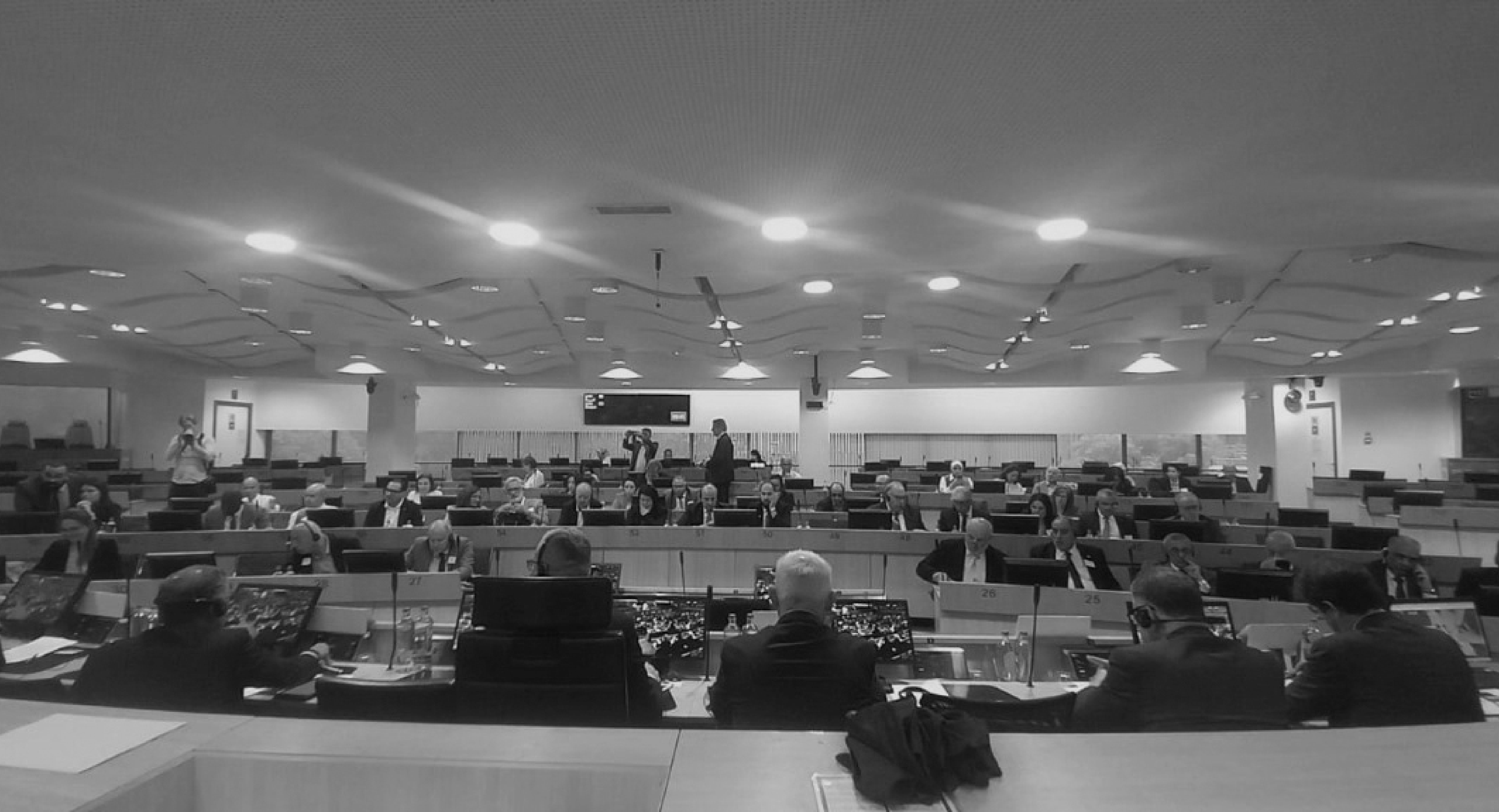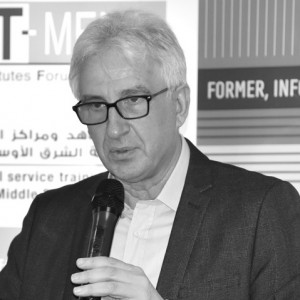
Dialogue for Dialogue's Sake: The Tragedy of Social Dialogues in the Arab Region - Adib Nehmeh
Adib Nehmeh

Dialogue for Dialogue's Sake: The Tragedy of Social Dialogues in the Arab Region - Adib Nehmeh
On July 11, 2024, the second phase of the SOLID project – funded by the EU – concluded in Brussels. The project encourages tripartite social dialogue between the private sector, unions, and civil society (including governments) in six Arab (Southern Mediterranean) countries: Algeria, Tunisia, Morocco, Lebanon, Palestine, and Jordan. After a three-year "dialogue" between these parties (and three years before that for the first phase), 100 recommendations were adopted covering most social action areas. This article focuses more on the dialogue process and the requirements for its success than on the outcomes represented by those recommendations.
The initial questions in this regard are the following:
1. What are the nature and objectives of social dialogue?
2. What are the criteria for success?
3. What are the practical requirements for its success?
It should be noted that these three issues are closely interconnected in practice.
The nature of social dialogue in our countries depends on the general environment around it, the parties that direct it, whether donors or the governments, and the parties participating in its procedures. As previously mentioned, they are representatives of labor unions, business associations, and (non-union) CSOs. Three decisive features define the general environment in which this dialogue takes place:
1. The first feature is the absence of democracy and the increasing restriction of the civil space and all its components and on public freedoms;
2. The second is the countries of the region's exposure to worsening economic and financial crises (such as debt, inflation, financial collapses, and living crises);
3. The third feature is the outbreak of wars on a dangerous and expansive scale, starting from Palestine and Gaza, passing through Sudan, and reaching other countries extending from Libya to Lebanon, Syria, Iraq, and Yemen.
In short, this dialogue's agenda, mechanisms, and ceilings were completely unfavorable. How can there be a "democratic and equal" social dialogue in a tense climate and under undemocratic regimes? This leads us to assume a divergence in the goals of influential parties (and those not procedurally participating in the dialogue—i.e., donors and governments).
On the one hand, the EU is committed to the written rules regulating the support mechanisms provided to Southern Mediterranean countries, which require participation and dialogue. They also see it as a way to control the participants' positions and a mechanism for indirect dialogue with governments that share the desire to maintain this dialogue within low ceilings. On the other hand, the governments control a fundamental part of the tripartite representation and procedural participation in the social dialogue, as well as managing the ceilings and positions. However, they also seek to formally maintain an acceptable image before donors and global public opinion, which is a formal requirement to continue receiving the political and material support they need.
The criteria for a successful social dialogue are objectively divided into two levels:
- First, this dialogue must impact adopted national policies, including relations with the EU and the positions of the EU itself. It is not a matter of formal dialogue for the sake of dialogue without results that lead to alternative policies or modifying the policies that generate this amount of political, economic, and social crises and more cultural tensions and identitarian isolationism.
- The second level is that this dialogue impacts the parties involved procedurally. It is unreasonable for representatives of the business sector, for example, to come out of the dialogue adhering to the same policies and practices in everything related to the way institutions are managed, working conditions, and the financial and economic system: for example, not showing any positivity regarding tax justice or respecting decent work conditions. The same applies to trade unions, for instance, regarding the rights of migrant and informal workers, which continues to be a significant gap in official trade union work. CSOs must also better balance their national functions and relations with external donors.
Lack of success at these two levels will lead to a very limited or merely formal social dialogue. The achieved experience will be devoid of indications of such an impact at the policy level and of a tangible positive impact on the three parties procedurally involved in the dialogue.
As for the dialogue itself and the requirements for its success from a procedural standpoint, and in light of the multiple experiences of social dialogues, whether at the national or regional level, it is worth noting the following necessary conditions:
1. The parties participating in the dialogue must have a common frame of reference. Such a frame of reference can only be the human rights system and its standards, especially for regional and international dialogues. Of course, it must be acknowledged that there may be distinct interpretations of this system and its standards. However, they are within the limits available for such distinctions in a way that does not contradict their essence. Any social dialogue that does not start from a common understanding of the frame of reference loses the guiding compass and the standard for interaction between different interests and positions and falls into one of two dangers: either a clash of positions without the possibility of reconciling them; or being satisfied with the alignment of recommendations and positions without genuine interaction between them.
2. Each party participating in the dialogue must recognize the other parties, their right to exist, and their right to defend their particular interests. They also have the right to participate in decisions based on these interests. This condition applies particularly to the powerful parties that direct the dialogue from behind the scenes (governments and donors) and dialogue participants with relative or absolute advantages in terms of power and resources compared to the other parties. Thus, the matter involves more than formal recognition expressed by accepting any party's participation in the dialogue. It is a matter of recognizing the existence of distinct interests that have their legitimacy. The goal of the dialogue would be to interact with these interests and arrive at settlements between them.
3. The participating parties must have a genuinely representative procedural capacity and be independent (especially from governments and donors). Civil society participants are divided into two categories: the first is based on membership, and its representation is also based primarily on membership and on the internal electoral process that produces its administrative bodies (unions, in particular); the second category involves CSOs that are not based on membership and that derive their legitimacy from the nature of the issues they defend, and from their activities, credibility, and independence through their past and current practices. The condition of representation is organically linked to independence, especially from governments in our case, as governments often control unions and various bodies, making them lose their representative character. We often hear in conferences from representatives of unions or civil society bodies a desperate defense of governments instead of defending the rights of the groups that these bodies are supposed to represent. The participation of parties or individuals who do not have independence from local or foreign political or financial authorities empties the dialogue of its meaning.
4. The dialogue's success also requires its successful management, commitment to the frame of reference (human rights), recognition of the different interests between the parties, and independence from governments and donors (those behind the curtain) and participating parties. They must also have the necessary skills to manage an interactive and equal dialogue, which produces a different outcome than the starting point at the end of the process. The dialogue management must be fully committed to the interest of the dialogue and its content and be free from the formal obligations that may be imposed by those who manage the project from behind the scenes or by one of the participating parties. It must also be free from its own agenda in the dialogue, and its commitment must be to the goals of the dialogue and mutual interests, not its own. It must not influence the final outcomes by administrative means.
Social dialogue is a democratic means of reaching an understanding between parties with distinct interests within the human rights frame of reference. It must not become a formal mechanism to maintain the status quo and whitewash one party or another. This is a noble and challenging task.
Adib Nehmeh
Recent publications

